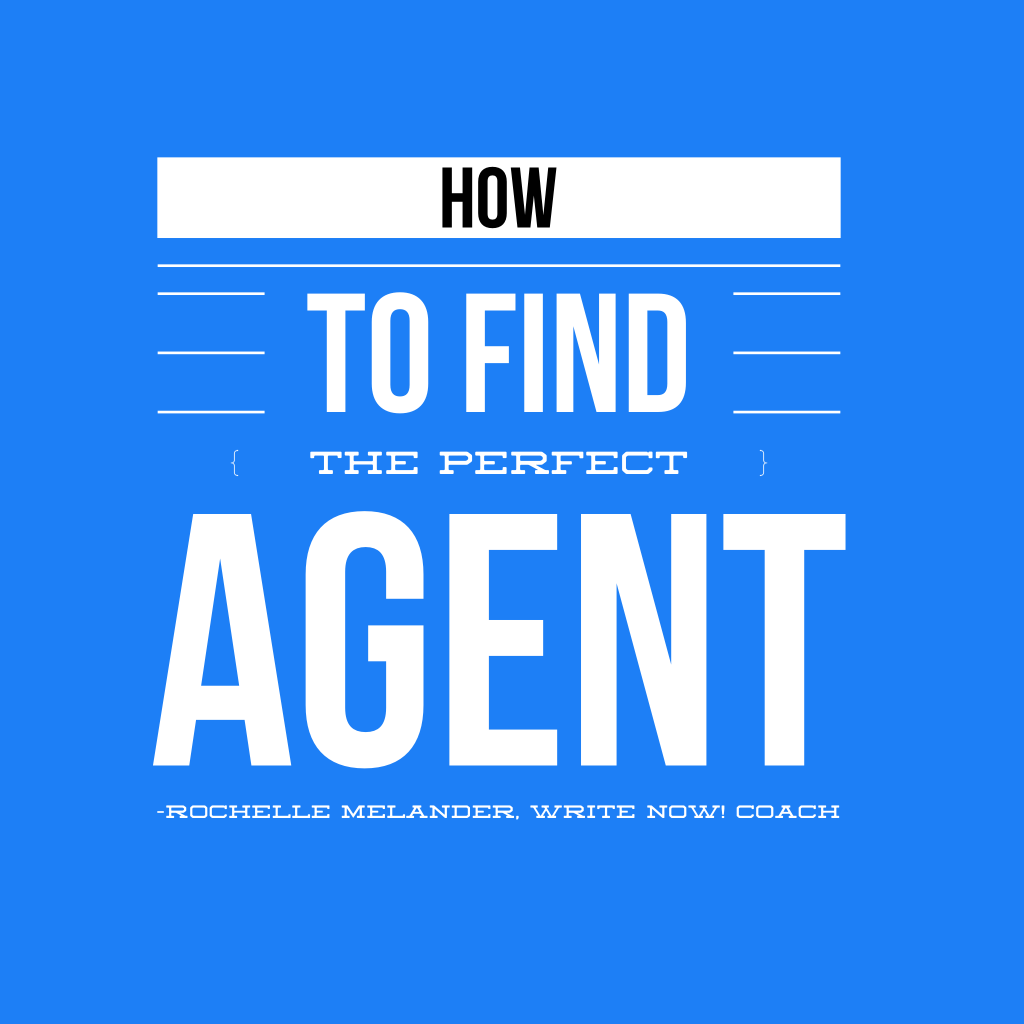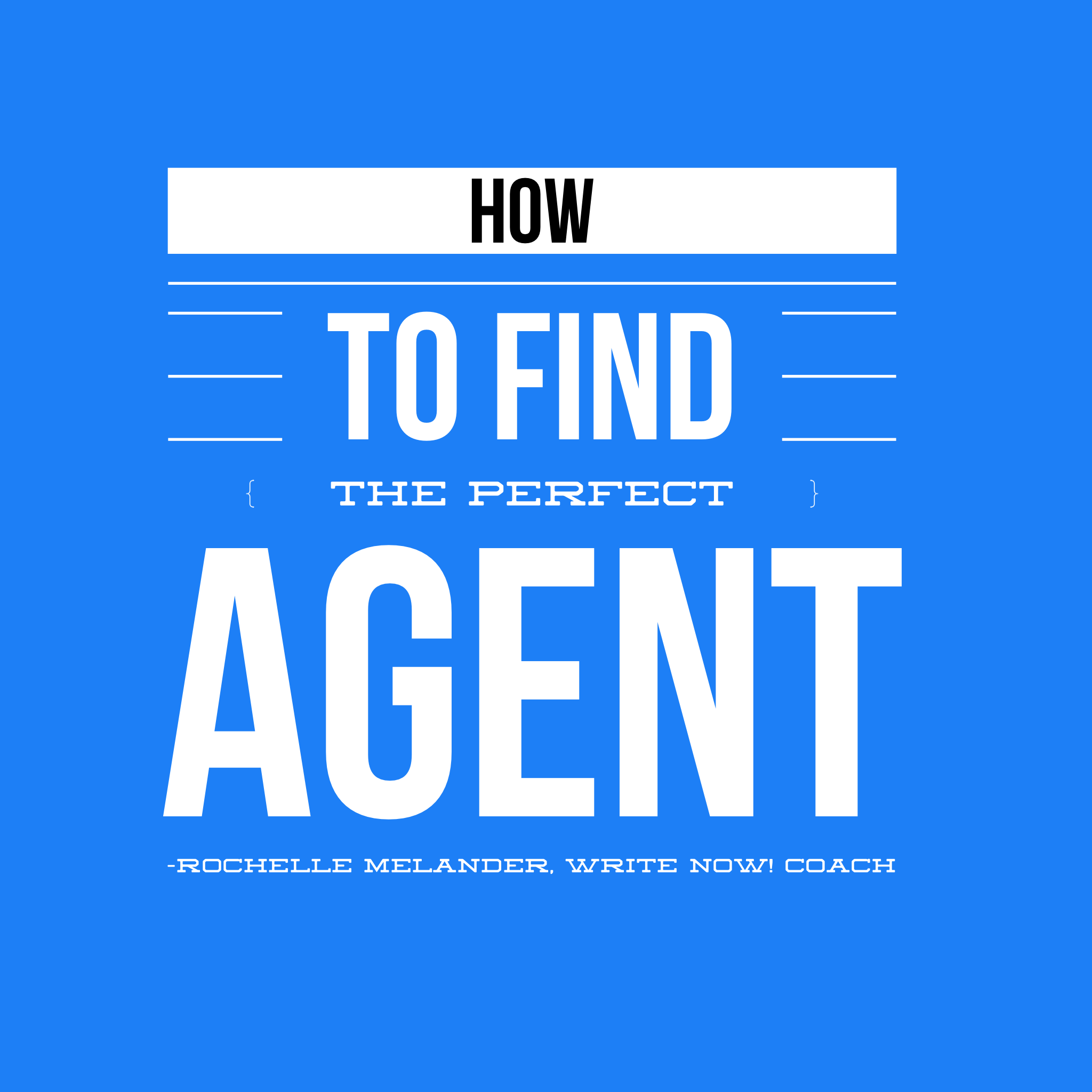How to Find the Perfect Agent by Rochelle Melander
There was a time in the not-so-distant past when agents were an essential part of achieving success as a writer. That’s no longer true. Today, writers can succeed without an agent by publishing with small presses, connecting with editors directly, or publishing their own books. But for some writing genres (children’s, popular fiction, some nonfiction), it’s still helpful to have an agent to connect with the big publishers and broker a great deal. Here’s my quick guide for finding the right agent.

Who is YOUR perfect agent? Look for someone who
+represents books like yours. Most agents have niches or types of books that they represent. If you send your book proposal on the life cycle of seals to an agent who only represents mystery novels, you will get rejected.
+supports you, your career, and your book in a way that works for you. Some agents are interested in supporting clients in developing a writing career. Others deal with one book at a time. As you seek out an agent, it is important to know what kind of support you need from your agent.
+is connected to people in publishing who will buy your book. An agent cannot do anything for you unless he or she is connected to editors in your field. The best agents have developed good relationships with several editors in their niche.
+is willing to negotiate the best contract. Agents get to do what writers cannot do for themselves—fight for more money, both as advance and in royalties.
How to find YOUR perfect agent!
1. Make a list of potential agents. It takes time to find an agent who is right for you. Most writers I know feel so desperate to move forward that they will take any agent that says yes. Don’t. It is important to research agents in order to find one that works to you.
+Search online. Both AgentQuery.com (no cost) and WritersMarket.com (yearly fee) offer online search tools for agents. Writers can search for agents according to the types of books they represent.
+Check acknowledgments. Most writers thank their agents in the acknowledgments. Look at books that are in your niche or writers who are similar to you and find out who agented their books.
+Ask. Talk to your critique group colleagues and other writing friends about their agents. Most writers are willing to share the name of their agents. Some will even introduce you to them.
2. Get to know the agents on your list. Before you query, learn as much as you can about the agents you’re interested in. You can figure out a lot about who an agent is, how they work, and what they’re looking for without ever talking to one.
+Visit their website or blog (or both).
+Follow them on Twitter.
+Search for information about them online.
+Attend conferences where they speak.
3. Connect and submit!
Once you’ve learned what agents you want to connect with, write the best query letter and synopsis or book proposal you can. Then, submit! Of course, the best way to query is to send letters to agents who are ready to welcome your queries. Usually, these are agents you’ve met through:
+A writing conference
+PitMad (A pitch party on twitter. http://www.brenda-drake.com/pitmad/)
+A mentor, colleague, or friend
Happy hunting, friends!










I found this very helpful. I have done research about this sort of thing, and this to be a great guide line for taking those final steps of you book!